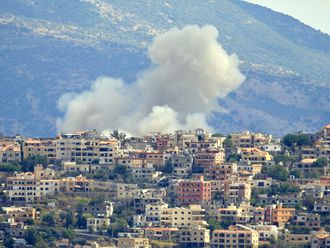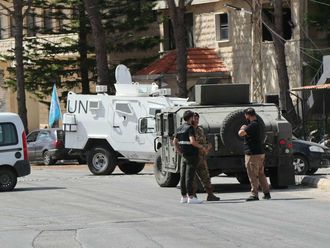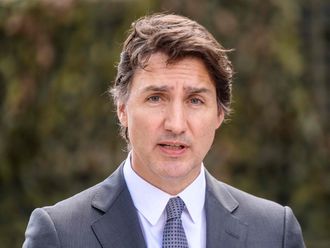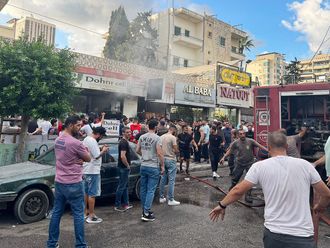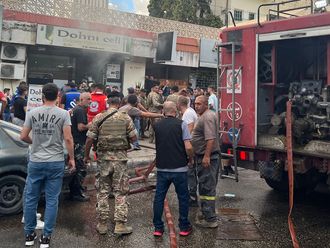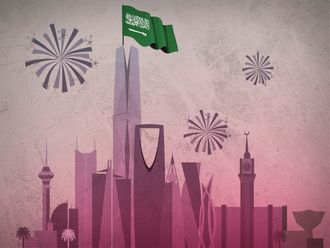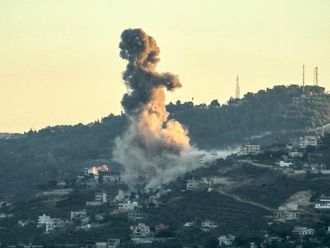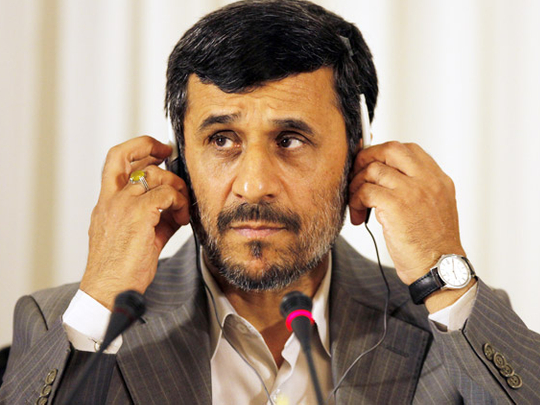
Tehran: Iran's president said on Wednesday he will soon announce new conditions for talks with the West.
However, first, he wants to punish world powers for imposing sanctions on Tehran and force them to "sit at the negotiating table like a polite child and talk to the Iranian nation."
The United Nations Security Council approved a new round of sanctions against Iran last week for its refusal to curb the country's nuclear programme, which the US and its allies suspect is aimed at producing weapons. Iran denies that.
President Mahmoud Ahmadinejad said Iran favours a dialogue with the West, but will announce its conditions soon.
He said the carrot-and-stick approach doesn't work and Iran will not make "one iota of concessions" to the West.
"You showed bad temper, reneged on your promise and again resorted to devilish manners," he said of the powers that imposed sanctions.
"We set conditions (for talks) so that, God willing, you'll be punished a bit and sit at the negotiating table like a polite child," he told a crowd during a visit to the central Iranian town of Shahr-e-Kord. His speech was broadcast live on state TV.
Ahmadinejad also attacked the US, saying Iran needs to save Americans from "their undemocratic and bullying government."
He charged that there was no freedom in the US and newspapers in America were not authorised to write against the Zionists or hold rallies against the "crimes" committed by their government.
Ahmadinejad was reacting to an invitation by the European Union foreign policy chief Catherine Ashton to Iran's top nuclear negotiator Saeed Jalili to discuss the nuclear issue.
At the same time, though, EU foreign ministers agreed Monday to recommend additional sanctions over the nuclear issue.
The UN sanctions were imposed because of Iran's refusal to halt uranium enrichment, a process that can be used in both the production of nuclear fuel for power plants or nuclear weapons.
The punishments target the country's powerful Revolutionary Guard, its ballistic missile programme and nuclear-related investments.
Ahmadinejad has dismissed the sanctions as "annoying flies" and as useless as a "used tissue."
Iran's parliament speaker Ali Larijani said on Wednesday that lawmakers back the government's push to enrich uranium to higher levels as a response to "bullying countries."
Beyond Iran's well-established programme that produces low-enriched uranium, it has begun to enrich to nearly 20 per cent through a small-scale programme using low-enriched feedstock. That programme has added to concerns about Iran's nuclear activities.
It is much easier to produce highly enriched, weapons-grade uranium for use in nuclear warheads from 20 per cent material than from low-enriched uranium.
Iran justified its decision to go to higher enrichment by saying it would be part of a process to create fuel for a research reactor producing medical isotopes after a deal meant to provide such fuel from abroad fell apart.
Larijani also warned that Iran will reciprocate if the US or other countries inspect Iranian planes or ships in line with new sanctions.
"We warn the US and some adventurist countries that should they be tempted to inspect consignment of Iranian planes and ships, they should rest assured that we will reciprocate [by inspecting] their ships in the [Arabian] Gulf and Oman Sea," he said.


